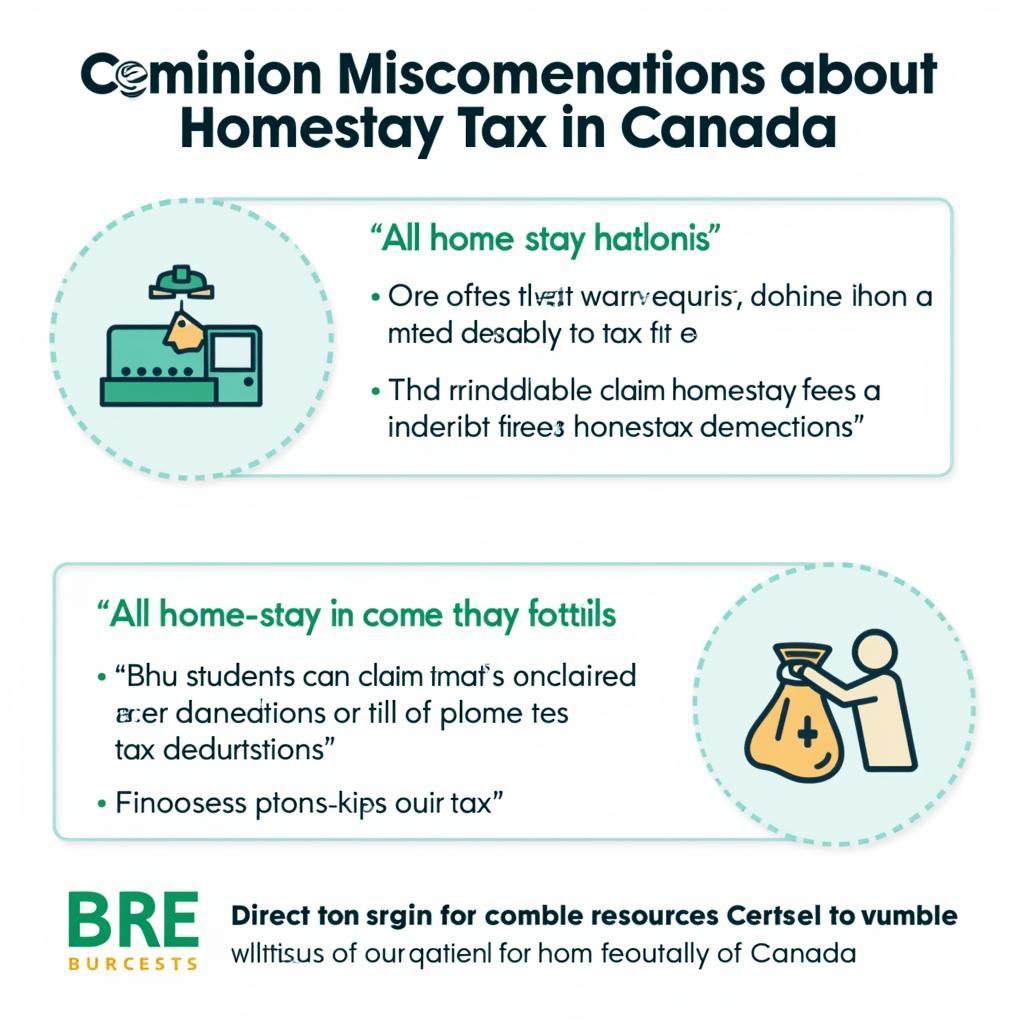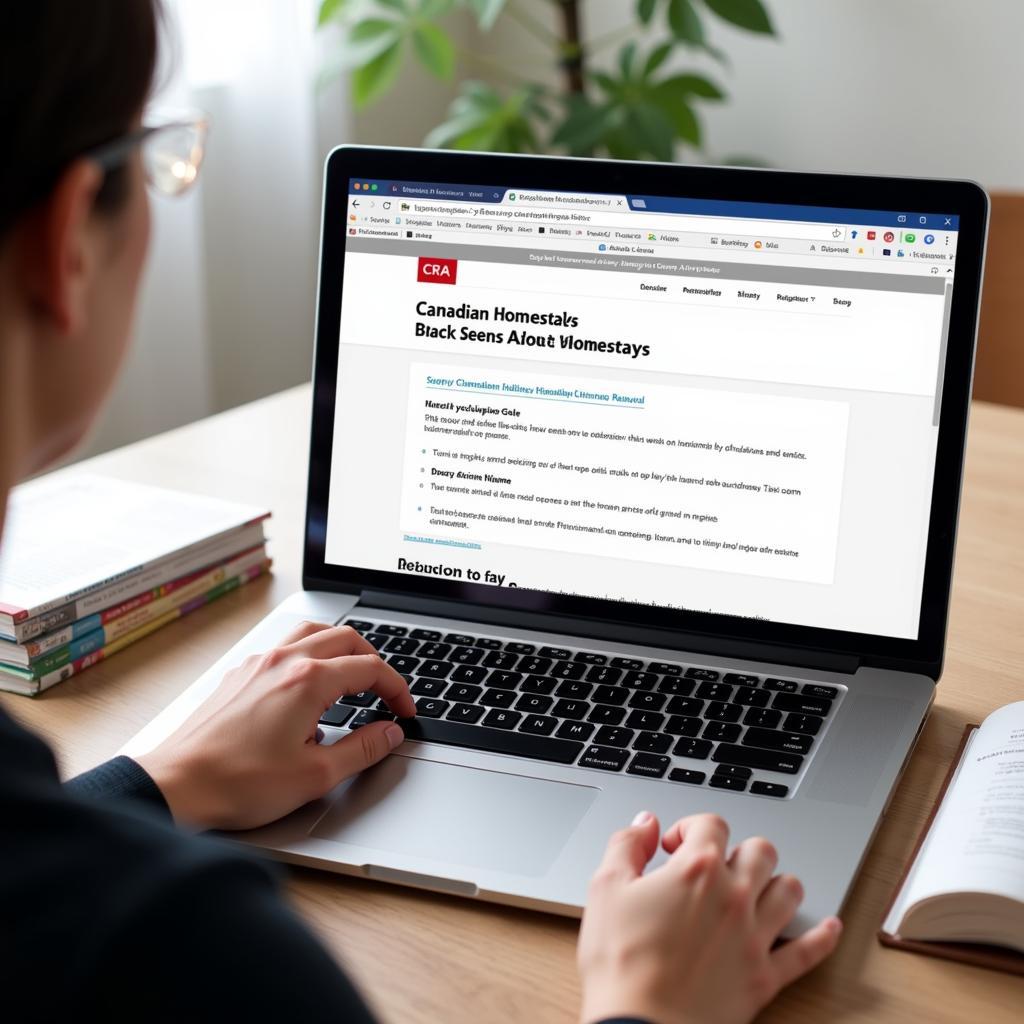Understanding homestay tax implications in Canada is crucial for both hosts and international students. Whether you’re a Canadian resident opening your home to students or an international student seeking affordable accommodation, navigating the tax landscape is essential. This guide will provide clarity on the various tax aspects of homestays in Canada, helping you make informed decisions.
Decoding Canadian Homestay Tax for Hosts
As a homestay host, the income you receive from hosting international students may be considered taxable income in Canada. The Canada Revenue Agency (CRA) generally considers income from providing accommodation as rental income. This means you might need to report this income on your tax return. However, certain exceptions and deductions can impact your final tax liability. Understanding these nuances can significantly affect your overall tax burden. It’s advisable to consult the homestay regulations canada for specific details.
Do I Need to Report My Homestay Income?
Generally, yes, you need to report your homestay income. However, there is a principal residence exemption that may apply. If the property where you host students is your principal residence, you might not have to pay tax on the rental income if certain conditions are met.
Deductible Expenses for Homestay Hosts
One of the advantages of declaring your homestay income is the ability to claim related expenses. This can significantly reduce your taxable income and, consequently, the amount of tax you owe. Examples of deductible expenses include a portion of your property taxes, utilities, and even some household maintenance costs.
Tax Implications for International Students in Homestays
For international students, paying for homestay accommodation doesn’t usually involve direct tax implications. You’re essentially paying for a service, similar to renting an apartment. Your homestay fees are not typically deductible as educational expenses. However, understanding the broader financial implications of homestay arrangements is important for budgeting and managing your finances while studying in Canada. Learn more about homestay fees taxable to clarify any doubts.
Budgeting for Homestay Expenses
It’s crucial for international students to factor in homestay costs when budgeting for their studies in Canada. These costs can vary based on location, amenities, and the duration of stay. It’s wise to compare different homestay options and factor in additional expenses, such as transportation and meals.
Common Misconceptions About Homestay Tax in Canada
There are several misconceptions surrounding homestay tax in Canada, often leading to confusion for both hosts and students. One common misconception is that all homestay income is tax-free. This is not necessarily true, as the tax implications depend on several factors, such as the host’s principal residence status and the amount of income earned. For a detailed understanding of related tax regulations, you can refer to homestay requirements canada.
 Homestay Tax Canada Misconceptions
Homestay Tax Canada Misconceptions
Is Homestay Income Considered Business Income?
Generally, homestay income isn’t considered business income unless you’re running a large-scale operation. If you’re hosting only a few students at a time, it’s typically viewed as rental income.
“Understanding the difference between rental income and business income is crucial for accurate tax reporting,” says Maria Sanchez, a certified financial advisor based in Toronto. “Misclassifying your income can lead to penalties and audits.”
Staying Informed and Compliant with Canadian Tax Laws
Canadian tax laws can be complex, and staying updated with the latest regulations is essential for both hosts and students. Resources like the CRA website and publications from tax professionals can provide valuable insights. You might also consider consulting with a tax advisor to address your specific circumstances. For students looking for homestay options and navigating the financial side, checking resources like how to become a homestay host in vancouver can be helpful. This can help you understand the costs associated with homestays and plan your budget accordingly.
 Staying Updated with Canadian Tax Laws
Staying Updated with Canadian Tax Laws
Staying informed is not just beneficial but crucial for ensuring accurate tax filings and avoiding potential issues with the CRA. Furthermore, being aware of your tax obligations contributes to the smooth functioning of the homestay system in Canada. “Proactive tax planning can save you time, money, and stress in the long run,” adds John Miller, a senior tax consultant at a reputable firm. “It’s always better to be prepared and avoid any surprises during tax season.” Consider reading more about homestay international student income tax to ensure you’re fully informed.
Conclusion
Navigating homestay tax implications in Canada doesn’t have to be daunting. With careful planning and a clear understanding of the regulations, both hosts and international students can ensure they meet their tax obligations while enjoying the benefits of the homestay experience. Being informed about homestay tax implications in Canada allows you to make informed decisions and enjoy a hassle-free experience.
FAQ
- What is the principal residence exemption?
- What expenses can homestay hosts deduct?
- Do international students need to file Canadian tax returns?
- Where can I find more information on Canadian tax laws?
- Should I consult with a tax advisor?
- How do I report homestay income on my tax return?
- What are the consequences of not reporting homestay income?
Situations and Questions:
Scenario: A homeowner rents a room in their primary residence to an international student. Do they need to declare the income?
Question: If the income generated from the rented room falls under the principal residence exemption limits, does the homeowner still need to declare it?
Scenario: An international student pays for a homestay and receives a receipt. Can they use this receipt for any tax deductions in their home country?
Question: What steps should the student take to verify if their home country allows for such deductions related to homestay expenses?
Further Reading & Resources:
- You may find more information on related topics within our website.
- We recommend consulting the CRA website for the latest updates on Canadian tax regulations.
Call to Action:
Need assistance with navigating homestay tax implications in Canada? Contact us!
Phone: 0793157979
Email: [email protected]
Address: 73C6+XR, Trung Son, Viet Yen, Bac Giang, Vietnam
Our 24/7 customer support team is ready to help.